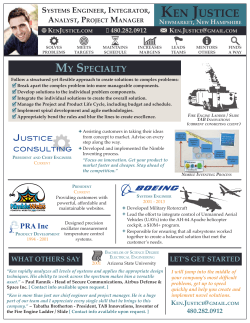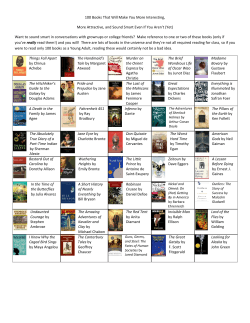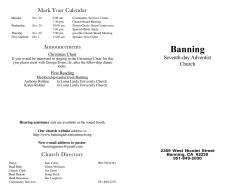
whose life is it anyway
WHOSE LIFE IS IT ANYWAY Remember when writing about Whose Life that a play is meant to be performed. It was written for 13 actors to perform to a theatre audience. When you read the play think about the dialogue and how it should be said by each character in each situation – what emotions are they feeling/going through? And think about the significance of the actions described in the stage directions. Concentrate on the dramatic impact. (This is not really a question where you talk about alliteration or punctuation of stage directions). Areas to consider: -The Plot: A play is a carefully constructed story. Each event that happens has a bearing on the whole play. - The Characters: The characters may change or your perception of them may alter during the play. - Themes: Ideas in the play, issues the playwright wants you to consider or points they want to make. - The setting Time and place chosen for the play - The language The writer’s choice of words and phrases which are deliberately chosen to convey characters and ideas. - Staging and performance Set, lighting, SFX, acting style and delivery EXAM FORMAT You have to choose one question to answer from a choice of three. • The first of the three choices will always be extract based. The extract is usually one to two pages in length and the question focuses attention directly on the extract. These questions do require an understanding of the play as a whole but really close attention to the extract printed is the key to successful answers. For Example: ‘Re-read pgs 20-23. In what ways does the writer create dramatic tension in this section?’ • At least one task will be set which focuses on a broader topic than the extract-based task. Questions often ask for a response to a character or a relationship – what this adds to the impact of the play. For Example: ‘How does the writer present the character of Ken Harrison?’ OR ‘Explore the way that the author presents the relationship between Ken and Dr. Scott’ • Another question will be likely to offer an imaginative/re-creative task in which you can write in role as one of the characters. Questions of this type will not necessarily always be set but they often appear as a third choice. For Example: ‘Imagine you are Dr. Scott the night before the trial. Write your thoughts’ These empathic questions are a popular and often successful option if you enjoy the opportunity to think and feel as a character at that particular moment in the play and it’s a change form more conventional essay approaches Whose Life Is It Anyway? • Read through setting and background notes and highlight anything relevant to the study of the play. • Read through Timeline notes so you are aware of all the major scenes. • Getting to know the play- Activity Sheet 1 and Activity sheet 2 Whose Life Is It Anyway? • Read through general summary notes • Read Pages 1-4 (up to John’s entrance) and answer the following questions: 1. What are the differences between the ways Sister and Nurse Sadler respond to Ken? 2. What examples of Ken’s self-deprecating humour can you find in this section? 3. What methods does the author use in the opening section of the play to establish Ken’s personality and what has happened to him? Ken’s Humour • The opening of the play gives a glimpse of Ken’s sense of humour. We have seen how he introduces his ‘backside’ to Nurse Sadler and jokes about being a ’skateboard’ during the night for an imaginary friend. Much of his conversation has a sexual edge to it and his obvious physical incapacity makes his repeated sexual innuendo (double meanings about sex) both darkly humorous and pathetic. While the nurses lower his bed he pretends to be descending in a lift through ‘Obstetrics, Gynaecology, Lingerie, Rubber wear’ (women’s underwear and fetish wear. The joke is on Ken since he knows there is no future for him in these areas). He makes frequent jokes based on his own sexual impotence, ‘Have me on the floor Sister please. Have me on the floor’. • Ken’s humour is self-deprecating. He is prepared to use himself as the butt of the jokes he makes. He is not afraid to laugh at himself and the position he finds himself in. He jokes about sex because he finds it ludicrous to imagine himself in any sexual situation. Whose Life Is It Anyway? 4. In the opening pages how has Clark conveyed all this information in such a short space of time? 5. How does Kay show her inexperience as a nurse? Why does Ken call her a ‘breath of fresh air?’ 6. What do you think would engage the interest of an audience in this opening? Whose Life Is It Anyway? • Activity sheet 3 will give you an opportunity to practise writing as if you were that character. Whose Life Is It Anyway? • Read through summary notes for pages 423. • Look at questions as you read and try and answer them for yourselves with reference to the play script. Whose Life Is It Anyway? Another key scene is the one where Ken talks to Mrs Boyle. Re-read over this scene p.24-30 and then look at Activity 6 Mrs Boyle • In the stage directions she is described as being ‘very professional in her manner’. Ken is often abrupt with other characters but he is consistently rude to Mrs Boyle. The problem is probably to do with the role she is obliged to play. She has no medical function. Her only task is to convince Ken to change his mind and accept the new life fate has presented him with. • Ken feels he is patronised by Mrs Boyle. He tries to communicate with her but he thinks she is not listening. This is not true, both she and Dr. Emerson understand perfectly but they cannot accept his decision so they gloss over his remarks or change the subject. • How do you think Mrs Boyle would justify her ‘professional detachment’? Whose Life Is It Anyway? • Look at how Act One ends p.31 – 36 • What else do we learn about Nurse Sadler and the Sister? • What do you make of Ken’s ‘compliment’ to Dr. Scott? (p.33). • What is Ken’s point about his sexuality? • What does John’s last line mean? Whose Life Is It Anyway? • Act Two • Look at summary notes on pages 37-53 and think about the questions raised. Whose Life Is It Anyway? Ken and Dr. Scott You may get a question about what makes a particular incident in the play dramatic or moving or effective. Look at the dialogue between Dr. Scott and Ken on pages 53-55. What makes this a particularly moving moment in the play? Ken and Dr. Scott (Act 2, P. 53-55) Dr. Scott uses Ken’s first name for the first time in this scene. Ken is being treated as a person, not just a patient here and it makes him ‘feel like a human being again’. It represents ‘another credit’ for Ken after Mr Hill has agreed to represent him and he can see a way out of his situation. It shows Clare Scott’s increasingly personal involvement with Ken and his case and it confirms the sadness she will experience if he succeeds in securing his own death. It is a bittersweet and complex moment for Ken because he is attracted to Dr. Scott and enjoys flirting with her but (unlike Mr. Hill) he will never be able to date her and develop this relationship and so this very attraction to her reinforces his determination to seek his own death. Whose Life is it Anyway? • Look at summary notes from p.56-p.71 • Analysing another key scene in the play, P71 – 75. • Read scene and then go through highlighting and making notes on the following question: ‘Explore the ways in which Clark highlights the main issues in the play through Ken’s conversation with the judge?’ Whose Life Is It Anyway? • Looking at three key characters • Ken • Dr. Emerson • John Character notes – read through past paper questions on characters and plan answer on one. Whose Life Is It Anyway? • What is the dramatic function of Dr. Scott in the play? • How does the writer present the character of Ken Harrison? • Explore the presentation of Dr. Emerson? • What is the dramatic function of the character of John? Whose Life Is It Anyway? Key Themes • The Dignity of Choice • Professionalism • Desire
© Copyright 2025









